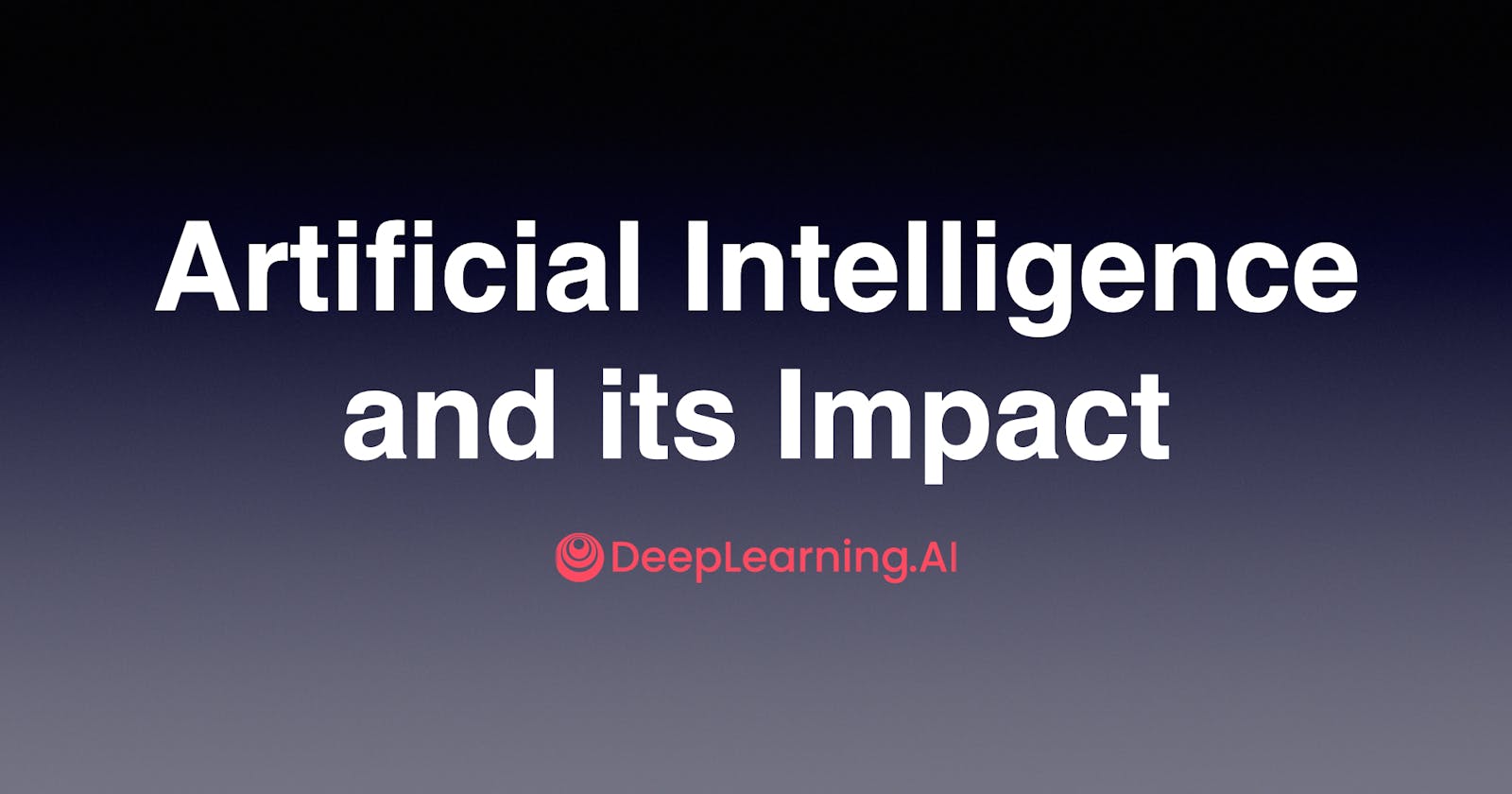Artificial Intelligence is changing the way we work and live. It can be used in a personal context in a corporation or some organization. But it's necessary to cut the hype and give a realistic view of what AI is. Estimates by McKinsey & Company show that AI has the potential to deliver additional total economic activity of approximately $13 trillion by 2030.
Read the article: "AI: The next frontier of performance in industrial processing plants"
Even though AI has created a lot of value in the software industry, however, a lot of the value to be created in the future lies outside of the software industry.

The above image is taken from the slides created by Deeplearning.ai
AI will have a huge impact on most of the sectors. Let's discuss some applications of AI in the different industrial sectors:
1) Retail Industry
Demand Forecasting
Cashier Less Technology
Automated Inventory Management
Customer Sentiment Analysis
Read the article: "How AI Is Changing the Retail Industry"
2) Travel Industry
Customer Travel Planning
Online Customer Services through chatbots
Facial Recognition and Identity Management through biometrics
Dynamic Pricing
Read the article: "The art of AI maturity in travel"
3) Transport and Logistics
Sort, pick, pack and organize inventory
Speeding up the order fulfillment process
Read the article: "The True Role Of AI In Logistics"
4) Automotive and Assembly
Self-driving cars
Predictive maintenance for engine and battery performance.
Read the article: "AI in the Automotive Industry: A 2023 Outlook"
5) Basic Materials
Notifying production faults in the manufacturing unit.
Solving engineering and design problems
Read this paper on "Scientific AI in Materials Science: a Path to a Sustainable and Scalable Paradigm"
6) Electronics and Semiconductor Industry
AI-driven chip design to reduce human error and time pressures
Assembly Verification
Defect Detection
Read the articles: "The Implications of AI Integration in the Semiconductor Industry" and "Computer Vision in Electronics"
7) Healthcare Systems and Services
Improving patient care through better diagnosis accuracy
Streamlining clinical process
Drug discovery
Customize treatments for patients
Read the article: "AI in Healthcare"
8) High Tech
Using AI bots for Robotic Process Automation(RPA)
Anomaly detection in cybersecurity
Using AI in blockchain for transparency in the supply chain
9) Telecom
Traffic flow optimization
Network architecture optimization
Predictive maintenance by Network Service Provider
Read the article: "4 Use Cases for AI in the Telecom Industry"
10) Oil and Gas
Reservoir Analysis
Drilling Optimization
Safety monitoring and emissions reduction
Read the article: "How AI Is Revolutionizing the Oil and Gas Industry – Nine Use Cases and Benefits"
11) Agriculture
Monitoring soil health
Crop disease detection
Agricultural robotics
Intelligent spraying
Read the article "8 Practical Applications of AI in Agriculture"
There is a lot of excitement but also a lot of unnecessary hype about AI. One of the reasons for this is that AI is separated into two different ideas.

The above image is taken from the slides created by Deeplearning.ai
Artificial Narrow Intelligence(ANI): Almost all the progress we are seeing is in ANI. These types of AIs perform single task such as smart speakers, self-driving cars, AI to do web searches or AI applications in farming etc. This type of AI is a one-trick pony i.e. it is good at doing only one thing. But once we find the trick this can be incredibly valuable.
Artificial General Intelligence(AGI): This is the goal of building AI. They can do anything a human can do or may even be superintelligent and do even more things than any human can.
There is tons of progress in ANI and almost no progress in AGI. Unfortunately, the rapid progress in ANI which is incredibly valuable, has caused people to conclude that there's a lot of progress in AI, which is true. But that has caused people to falsely think that there might be a lot of progress in AGI as well which is leading to some irrational fears about evil clever robots coming over to take over humanity anytime now. AGI is an exciting goal for researchers to work on, but it'll take multiple technological breakthroughs before we get there. Mostly the projects we do or the curriculum we learn in AI teaches us about ANI.
In our society, newspaper and research papers tend to talk only about the success stories of ML and AI, but we hardly see any failure stories because they aren't just interesting to report on. But to get a realistic view, we must consider examples of both the cases to make an accurate judgement that what we may and maybe should not try these technologies for. There is a still lot to research and still lot to see in the field of Artificial Intelligence.
Credit for the above blog: I have gained the knowledge for the above blog from a course 'AI for everyone' by Andrew Ng. Thank you Deeplearning.ai for such a wonderful course.
